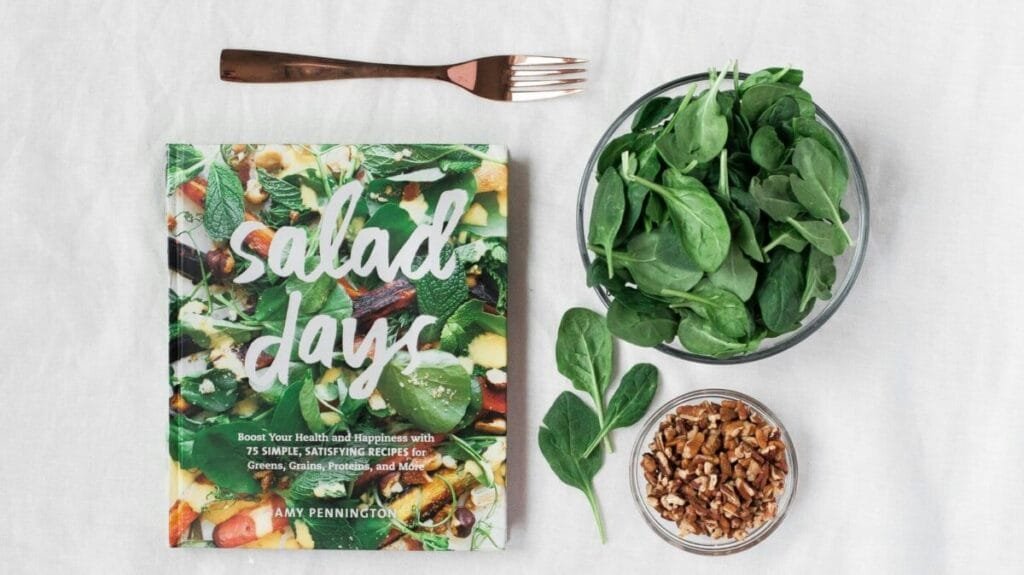Fueling the Night Shift: What to Eat Before Working Overnight
It’s 10 p.m. and you’re gearing up for another overnight shift. While the rest of the world winds down, you’re checking the fridge, knowing that whatever you eat now will have to power you through the wee hours. Choosing the right pre-shift meal isn’t just about staving off hunger – it can literally make the difference between cruising along at 3 a.m. or struggling to keep your eyes open. In fact, night shift workers have a 30% higher risk of errors or accidents on the job compared to day workers, largely due to fatigue
Fuel Your Night Shift: YouTube Video.
The good news? What you eat before your shift can help fight that fatigue and keep you alert. Research shows that smart nutrition strategies (just like proper sleep or light exposure) can reduce shift-work fatigue and boost alertness, even improving cognitive performance during those late hours
Let’s take a nighttime journey through your metabolism and discover the best foods to fuel your body and mind before a night shift.
Meet Sam, a veteran ER nurse on the night shift. Sam knows the midnight slump all too well – that foggy feeling when concentration slips. But after some trial and error (and a bit of science), Sam has found a secret weapon: a well-timed, balanced meal before heading to work. It turns out that when it comes to staying energized through a graveyard shift, not all dinners are created equal. The body’s internal clock (your circadian rhythm) still thinks it’s bedtime, so a heavy, greasy takeout feast can leave you sluggish, while a smartly composed meal can keep you sharp. Let’s break down what Sam (and you) should look for on the plate:
Steady Fuel: Slow-Burning Carbs for Lasting Energy
When you’re working against your natural sleep cycle, maintaining stable blood sugar is key. Ever had a candy bar or sugary soda for a quick boost, only to crash an hour later? That’s the blood-sugar rollercoaster you want to avoid at 2 a.m. The solution is to choose complex carbohydrates – think whole grains, legumes, and vegetables – that release glucose slowly and steadily. Studies have shown that low-glycemic index (low-GI) meals (which cause a gentle rise in blood sugar) can lead to better cognitive function a couple of hours after eating, presumably because they prevent wild swings in glucose levels.
In plain terms, a bowl of oatmeal or brown rice with veggies will fuel your brain more evenly through the night than a donut or white bread would.
A bowl of oatmeal topped with almonds, raspberries, and apple slices. This kind of fiber-rich meal provides complex carbs and healthy fats for a slow, steady energy release during a night shift.
How does it work? Complex carbs are packed with fiber and often paired with fiber or protein in whole foods, which means they take longer to digest and won’t spike your blood sugar. Avoiding peaks and troughs in blood glucose is important for both energy and brain function.
pmc.ncbi.nlm.nih.gov. For example, a serving of overnight oats with chia seeds, nuts, and fruit is a powerhouse option: the oats and chia give you soluble fiber (keeping you full and your blood sugar stable), the nuts contribute protein and healthy fat, and the natural sugars in fruit come with fiber and vitamins. Research suggests that such a low-GI, high-fiber approach not only keeps you energized but may also support your cognitive performance in the short term and even long term health. On the flip side, high-GI foods (think sugary cereals or pastries) can cause a quick spike and then a sharp drop in blood sugar, which might leave you feeling drowsy or shaky halfway through your shift.
Sam learned this the hard way after once wolfing down a couple of glazed donuts before a shift – by midnight, the sugar rush was long over and he felt more drained than ever. Now he opts for things like quinoa with roasted vegetables or a hearty vegetable soup with barley before work. These foods release glucose nice and slowly, keeping his energy on an even keel. In fact, shift workers who stick to diets rich in vegetables, legumes, fruits, and nuts tend to report less fatigue and better alertness, whereas diets high in refined sugar and saturated fats are linked to worse sleep and sluggishness. So, building your pre-shift meal on a base of whole plant foods (whole-grain breads or pastas, beans, lentils, leafy greens, sweet potatoes, etc.) gives you a strong, steady foundation of energy for the long night ahead.
Pro tip: Don’t overeat, though. It’s tempting to “fuel up” with a huge portion, but research cautions that large meals can actually make you more sluggish during night shifts, whereas smaller, balanced meals keep you more alert. Ever notice how you want a nap after Thanksgiving dinner? The same can happen if you feast before work. Sam now sticks to a modest-sized dinner and brings healthy snacks for later rather than one gigantic meal.
Plant-Powered Protein (and a Side of Fish or Turkey)
To stay satiated and focused through a long night, protein is your friend. It helps slow the digestion of carbohydrates, preventing blood sugar spikes and crashes, and provides amino acids that are crucial for brain function. But not all proteins need to come from meat. In fact, a primarily plant-based diet can work wonders for night shift workers. Foods like beans, lentils, tofu, edamame, nuts, and seeds are excellent protein sources that also pack fiber and minerals. They take time to digest, which means a bean chili or a lentil curry before your shift can keep you feeling full and gradually release energy for hours.
Interestingly, one study on meal composition found that when people ate a protein-rich or protein + carb balanced meal, they performed better on cognitive tests after the meal than when they ate a carb-heavy meal. The carb-heavy meal initially boosted some attention spans, but a couple of hours later those who had a balanced meal were mentally sharper
pmc.ncbi.nlm.nih.gov. The take-home message? Balance those carbs with protein. For example, pair your brown rice (carb) with black beans or chickpeas (protein), or have whole-grain toast with peanut butter. Sam’s go-to now is a quinoa bowl mixed with chickpeas and colorful veggies, drizzled with a bit of tahini. It’s a simple, plant-powered dinner that checks the boxes for protein, complex carbs, and healthy fat.
What about fish and turkey, the two animal proteins our mostly plant-based game plan will allow? If you enjoy them, they can absolutely be part of a pre-night shift meal – and science offers good reasons. Fish, especially fatty fish like salmon, mackerel, or sardines, is rich in omega-3 fatty acids which are famed for their brain-boosting benefits. Omega-3s (like DHA and EPA) help keep the membranes of your brain cells flexible and support communication between neurons. Consuming omega-3s has been shown to improve learning, memory, and overall cognitive well-being, even increasing blood flow in the brain. There’s long-term evidence too: people who eat fish regularly tend to have a lower risk of cognitive decline as they age. So, including fish in your dinner a couple nights a week could not only help you stay alert during your shift, but keep your brain healthy in the long run. For a night shift meal, a serving of grilled salmon (rich in protein and omega-3s) with a side of brown rice and steamed broccoli is pretty much a perfect combo – you’ll get that steady energy from the rice and fiber, plus protein and brain fuel from the fish.
A balanced pre-shift meal: grilled salmon (protein & omega-3s) with brown rice (complex carb) and asparagus (fiber-rich vegetables).
Now, turkey deserves a mention too. Turkey is a lean protein, meaning it gives you the protein you need without a lot of saturated fat. It’s famous (or infamous) for containing tryptophan, an amino acid that the body uses to produce serotonin (and eventually melatonin). Serotonin is a neurotransmitter that helps regulate mood and sleep-wake cycles. Eating tryptophan-rich foods like turkey can boost serotonin production in the brain, which might improve your mood and help keep you calm and focused through a stressful shift. (Don’t worry – the idea that turkey will knock you out cold is a bit of a myth. Yes, tryptophan can make you sleepy if it reaches your brain in high amounts, but when you eat turkey as part of a meal, the protein slows things down enough that you won’t instantly doze off. In fact, that post-Thanksgiving drowsiness is more about the sheer volume of food!). So a turkey sandwich on whole-grain bread with plenty of veggies, or a turkey and quinoa salad, can be a great pre-shift option. The protein will keep you satisfied, and you’ll also be getting B-vitamins from turkey that help your body convert food into energy.
Even beyond meat, there are other unsung protein heroes that help with night shift alertness. Eggs, for instance, are quick to prepare and provide a complete protein profile along with nutrients like choline that support brain health. Or consider Greek yogurt with some nuts and berries as a lighter meal – the combo of protein (yogurt, nuts) and low-GI carbs (berries) can carry you a few hours, especially for those shorter night shifts or if you plan a big snack later in the night.
The key is to mix and match. Sam sometimes opts for a plant-based meal (like a big tofu stir-fry with veggies and brown rice), and other times includes a bit of fish or turkey. Both approaches work, and both are far superior to the old days when he’d grab a fast-food burger on the way to work. That burger, high in unhealthy fats and simple carbs, would sit heavy in his stomach and offer a quick burst of energy followed by hours of lethargy. By contrast, a lean protein + complex carb meal releases energy gradually and helps avoid that heavy, drowsy feeling.
Healthy Fats for Brain and Satiety
We’ve talked about carbs and protein, but don’t forget the fats, especially the healthy ones. Incorporating some healthy fats in your pre-shift meal can further stabilize your energy and support cognitive function. Fats slow digestion (keeping that fuel trickling in slowly) and are essential for absorbing certain vitamins. Importantly, your brain is nearly 60% fat by dry weight, so it loves fat as a fuel and structural component – but the type of fat matters.
Focus on unsaturated fats like those found in nuts, seeds, avocados, and olive oil (as well as the omega-3s in fish we mentioned). These have anti-inflammatory benefits and have been linked to better heart and brain health. In one study on shift-working healthcare workers, those who had higher intakes of polyunsaturated fats (found in foods like walnuts, flaxseed, fish, and yes, even plant oils) and vitamin E (found in nuts, seeds, and greens) tended to score better on cognitive tests than their colleagues who didn’t get as much of those nutrients
jtsm.org. It appears that filling your diet with these healthy fats can help counteract some of the cognitive strain of overnight work. So, adding a handful of almonds or walnuts to your pre-shift meal or salad isn’t just good for your heart – it’s brain food. Tossing your vegetables in a bit of olive oil, or including a side of guacamole with your meal, can be beneficial too.
On the other hand, try to keep saturated and trans fats (like those in fried foods, heavy cream sauces, or processed snacks) to a minimum, especially before a night shift. Not only can they leave you feeling bloated and sluggish, but diets high in saturated fat and sugar have been associated with poorer sleep quality and next-day fatigue. That’s the opposite of what we want when we’re staring down an eight-hour stint under fluorescent lights at 2 a.m.
Sam noticed that when he added some healthy fat to his pre-shift dinners – such as sprinkling chia or flax seeds on his salad, or including a side of avocado – he felt more satisfied and didn’t experience those distracting hunger pangs halfway through the night. Plus, these fats likely contribute to keeping his mind more clear. In fact, a small pilot study even found that when night workers ate a meal higher in fat and lower in carbs, their cognitive performance improved during the night compared to a high-carb meal. This doesn’t mean you should drown your food in oil, of course, but it underscores the idea that balanced meals including some fat can be helpful for sustained alertness.

Smart Snacking and Hydration
Okay, technically snacks and drinks aren’t part of the “meal before the shift,” but no discussion of fueling a night shift is complete without them. After that well-planned dinner, you’ll likely still need a little pick-me-up during the night. It’s wise to bring healthy snacks with you so you’re not at the mercy of vending machines or the box of donuts in the break room. Great options include a small bag of mixed nuts and dried fruit, carrot sticks with hummus, or apple slices with a bit of peanut butter. These combine fiber, a bit of healthy fat, and natural sugars to give you a boost without a crash. And because they’re not processed junk, they’ll also be kinder to your waistline – many shift workers struggle with weight management due to irregular eating. By sticking to nourishing snacks, you help avoid the blood sugar rollercoaster once again.
Also, stay hydrated! Night shifts can dehydrate you (especially in environments like hospitals with dry air or if you’re drinking lots of coffee). Even mild dehydration can worsen fatigue and impair concentration. Simply drinking enough water can make a noticeable difference in your vigilance. One report on physicians found that those who kept up with hydration and small, frequent nutritious meals performed cognitively on par with people 10 years younger – that’s how much of a boost proper eating and drinking can give! Aim to sip water regularly and consider green tea or herbal tea as a hydrating beverage with a gentle lift (green tea offers a bit of caffeine plus L-theanine, which can enhance focus without jitters). If you do need caffeine (and let’s be honest, many night workers do), try to time it earlier in your shift – for example, having a cup of coffee at the start or within the first few hours. This gives you the alertness boost when you most need it, but avoids loading up on caffeine near the end of your shift, which could sabotage your daytime sleep later
tap.health. Sam personally sticks to one strong cup of coffee around the beginning of his shift, and then switches to water and the occasional green tea. He’s found that any coffee after 2 a.m. makes it hard to unwind when he gets home in the morning.
Lastly, listen to your body. Everyone is a bit different. Some people, like Sam, find they do best with a solid meal before work and just light snacks during the night, to avoid digestion issues at 3 a.m. Others might split their “dinner” into two smaller meals – one at the start of the shift and one around midnight. There’s research ongoing about the best timing for meals for shift workers (for instance, some studies suggest limiting meals during the night to protect metabolic health), but as a general rule, a balanced meal before starting work is crucial. It sets the stage so you’re not running on empty or riding a sugar high early on.
A Night-Shift Meal in Action
To bring it all together, what might an ideal pre-night shift meal look like? The key components are: complex carbs + lean/plant protein + healthy fat, with plenty of veggies or fiber. Here are a few ideas that combine these elements:
- Quinoa Veggie Power Bowl: Quinoa (a high-protein whole grain) topped with roasted broccoli, sweet potatoes, and chickpeas. Add a drizzle of olive oil and a sprinkle of pumpkin seeds for healthy fat. This bowl is packed with fiber, protein, and slow-digesting carbs to keep you fueled.welldocalberta.orgjtsm.org
- Salmon, Greens and Grains: A portion of grilled salmon with a side of brown rice or quinoa and a big serving of sautéed spinach or kale. You get omega-3s and protein from the fish, complex carbs from the grain, and a truckload of vitamins from the greens. It’s light but satisfying, and delivers steady energypmc.ncbi.nlm.nih.gov.
- Turkey and Avocado Wrap: Whole-grain tortilla spread with hummus, loaded with slices of turkey breast, avocado, lettuce, tomato, and bell peppers. Roll it up and you’ve got lean protein, healthy fats, complex carbs, and crunchy veggies all in one handheld meal. The fiber and protein combo will ward off hunger pangs for hours, and the variety of colors means you’re getting a range of micronutrients too.
Each of these meals mirrors what the science says a night shift worker’s body appreciates: balance and nutrient density. You’ll notice none of them are greasy fried foods, huge portions of simple carbs, or ultra-sugary. Those types of foods might be comfort foods, but on a night shift they’re the kind of comfort that comes with a price – an hour or two later you pay with yawns and brain fog. By choosing mostly plant-based foods, with the addition of some fish or turkey for extra protein and brain nutrients, you’re giving your body high-octane fuel.
Narratively speaking, imagine your body as a wood-burning stove during that night shift. Refined sugars and junk food are like paper tossed into the fire – they flare up with bright flames (a quick jolt of energy) and then fizzle out, leaving you cold. Complex carbs, protein, and healthy fats are like adding slow-burning logs to the fire – they might not create a huge immediate blaze, but they’ll keep the fire burning warm and steady through the long night. And that’s exactly what you want when you’re at hour six of a busy shift and need your wits about you.
Finally, don’t forget that what works best can also be personal. Some trial and error is fine – maybe you find that a certain smoothie or a particular combination of foods makes you feel fantastic. Take note of that and make it part of your routine. Sam, for instance, discovered that a banana-spinach-peanut butter smoothie (with a scoop of protein powder and oats) before his shift sits well with him on days he doesn’t want solid food. It gives him protein, carbs, and fat in liquid form, which is easy to digest, and then he’ll have a small snack a few hours in.
In summary, the best foods to eat before a night shift are those that provide steady, long-lasting energy, support your brain, and keep your blood sugar stable. Emphasize plant-based choices: whole grains, beans, lentils, vegetables, fruits, nuts, and seeds. Add in some fish (for those omega-3s and high-quality protein) or turkey (for lean protein and tryptophan-derived serotonin boost) if you like. Keep the meal moderate in size and balanced in macronutrients. And remember to hydrate! By treating your pre-shift meal as fuel for performance, you’re setting yourself up not just to survive the night, but to thrive through it. When 4 a.m. rolls around, you’ll be glad you opted for that salmon-quinoa bowl or veggie wrap – and your body and brain will thank you with steady hands, a clear head, and enough energy to greet the morning sun with a job well done.
Read Nutrition Articles, Click Here.




